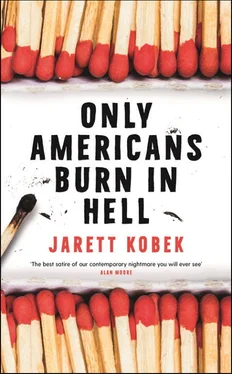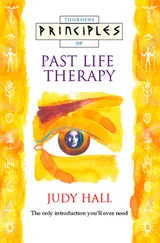Let me state for the record that I don’t work for Vladimir Putin, who is the President of the Russian Federation, or the FSB, who are the state security agency of the Russian Federation.
But I would!
Do you think I want to write hack bullshit about Fairy Land?
Buy me, Vladimir Vladimirovich, buy me!
If you want to understand the Hell in which we live, I suggest taking a look at changes in the American publishing industry throughout the Twentieth Century AD and Twenty-First Century AD.
At the beginning of the Twentieth Century AD, publishing was a father-and-son business. People had a press, they published writers they liked, and hopefully it worked out.
In the 1960s AD, the industry faced existential challenges of distribution, cost, and the sudden realization that the people no longer had to read trash for their numbing dose of daily entertainment.
These challenges resulted in in a wave of consolidation and mergers.
Where there had been, say, a hundred publishers, there were now about thirty.
The mergers continued throughout the 1970s AD, decelerated for a little while, and then kicked off again during the 1980s AD.
The latter decade introduced a new element: the presence of multinational conglomerates.
After the Democratic President William Jefferson Clinton signed the Telecommunications Act of 1996 AD, which deregulated rules of ownership, there was a wave of mega-media mergers that extended well beyond publishing.
Long before this happened, most of the United States’ major publishers had been bought up by mega-corporations. In the new mergers, publishing was an afterthought. It was garnish on the meal.
By the mid-2010s AD, this was the state of the publishing industry: there were five major publishers, all owned by mega-companies, with three of the five owned by corporations not based in the United States.
The Big Five were Penguin Random House, Hachette, HarperCollins, Simon & Schuster, and Macmillan.
Macmillan was owned by Holtzbrinck Publishing Group, which was based in Germany.
Penguin Random House was owned by Bertelsmann, which was based in Germany, and which I’ve insulted enough to ensure that I’ll be banished from American publishing for the foreseeable future.
Hachette was owned by Lagardère, which was based in France and was, for most of its history, powered by the manufacture and sales of weapons.
Simon & Schuster was owned by CBS, which was based in the United States.
HarperCollins was owned by Rupert Murdoch, and about whom I will soon say enough bad things to ensure that I’m banished from American publishing for the rest of eternity.
Technically, The Future Won’t Be Long wasn’t published by Penguin Random House.
Technically, it was published by Viking, which once upon a time had been the Viking Press before it was eaten by Penguin Books and became Viking Penguin, and before Viking Penguin was eaten by Penguin Putnam, and before Penguin Putnam was rebranded as the Penguin Group and was eaten by Penguin Random House.
Reader, if you follow this metaphor of consumption to its logical end, you may imagine my failed novel as the excrement that follows such a hearty meal.
If there’s one media outlet that has dominated the tone and tenor of American life since some Muslims facefucked life into a shitty disaster movie, it’s Fox News, which is a network found on cable television.
Generally speaking, Fox News offers news from a Far Right perspective, and is consumed by an ongoing advocacy that Muslims should be reduced to a heaping pile of agonized screaming ash.
If you’re in any liberal American home, and you want to invoke a series of paleoconservative values while implying your moral superiority to the people who hold them, all you have to do is wave your arms around as if you’ve been stung by a bee and shout this: “FOX NEWS! FOX NEWS! FOX NEWS!”
Everyone will know what you mean.
They’ll know that you mean this: “Republicans want to burn gay people alive and put Black people in cages and fuck up everything that I believe! But that stops here! After the digestifs!”
I shop in a grocery store designed for the haute bourgeoisie.
The prices are ridiculous.
Other than the organic produce, every product in my local grocery has, somewhere on its packaging, a goofy narrative about the company that manufactures the product.
In my neighborhood, it is impossible to go to the local grocery store and buy mustard without encountering a whimsical tale about rural people from Northern California and Oregon and how their quirky values are reflected in the ingredients of their products.
These quirky values are why it costs $3 for a vegan cookie.
The narratives go something like this:
Twenty years ago, my wife Betty and I were in our kitchen, talking about the taste of the mustard that our parents bought. All of the store brands weren’t anything like what we remembered, and they were made with pre-processed ingredients and contained preservatives. These chemicals might have allowed for a longer shelf life, but they reduced flavor, and even worse, no one knew what they did to people’s health. “I wish someone would go back to old-fashioned values,” I said. “Why won’t someone make a mustard that tastes great and is good for people?”
Then Betty asked a question that changed our lives.
“Why don’t we do it?”
I have watched hundreds of people read these narratives.
And as I have watched people read these narratives, the thought has occurred to me that people are more conscientious about their mustard than they are about the media they consume.
Reader, I have written a narrative in the voice of the man who owns HarperCollins and Fox News.
To acclimate you to its message, I’ve written this narrative in the style of stories that one finds printed on jars of organic mustard:
MEET RUPERT
Hi, I’m Rupert Murdoch. I’m having a cuppa in my country home in Mayfair, part of a little town that the lads like to call London. You probably don’t know much about my story, but ooh, crikey, I reckon it’s a real ripper.
Over sixty years ago, when I inherited an Australian newspaper from my father, I knew that people didn’t want a landscape chocka with media outlets producing a true spectrum of thought. The world was crying out for an oligarchical structure of media ownership, where a handful of companies controlled everything and created a false dichotomy of public opinion.
I took my father’s little newspaper and used it to gain an iron control over Australia’s media landscape, and I funneled the obscene profits into a slow campaign against other countries. My first target was the English. Those old bogans couldn’t resist my crass strategy of big tits paired with disgusting opinions for the ill-educated masses.
I moved on to America and did the very same thing. It was ace. The molls in the American government were some real wantons, and they deregulated their media landscape so that me and a few other big’un blokes could consolidate control over almost every outlet in the country. Television, film, newspapers, and publishing. Those Americans were bang up for it. What a bunch of naughty slags.
Maybe you’ll recognize one of my profitable divisions. It’s called Fox News. It does a cracking job of getting the olds upset about global warming and Christmas.
I also own HarperCollins, and one of the things that Harper-Collins does is publish books by American liberals. Strewth, it’s a great deal! I use Fox News to make money off rightward turns of public opinion, and then I make money off the reaction to those rightward turns of public opinion by publishing books which the ideological opponents of Fox News quote like gospel scripture.
Читать дальше









![Brian Thompson - A Monkey Among Crocodiles - The Life, Loves and Lawsuits of Mrs Georgina Weldon – a disastrous Victorian [Text only]](/books/704922/brian-thompson-a-monkey-among-crocodiles-the-life-thumb.webp)


